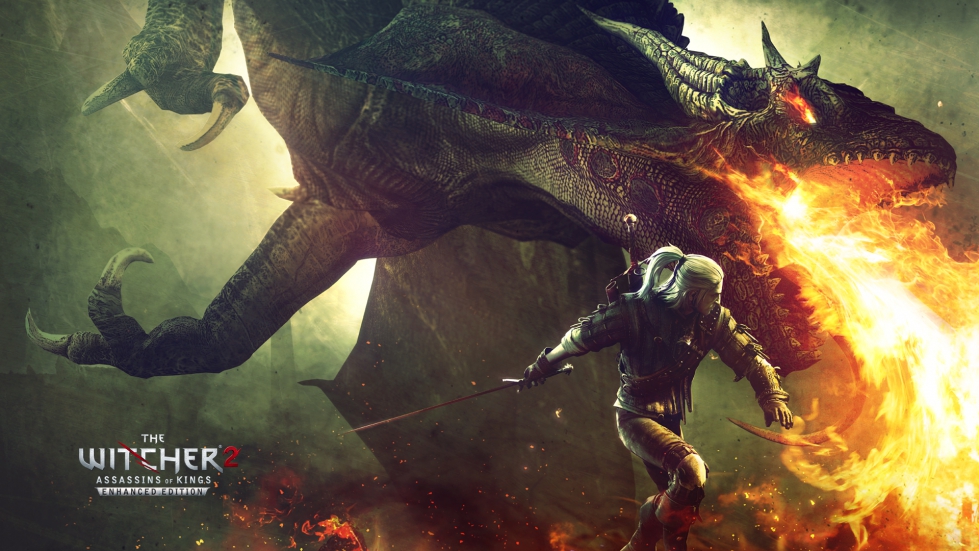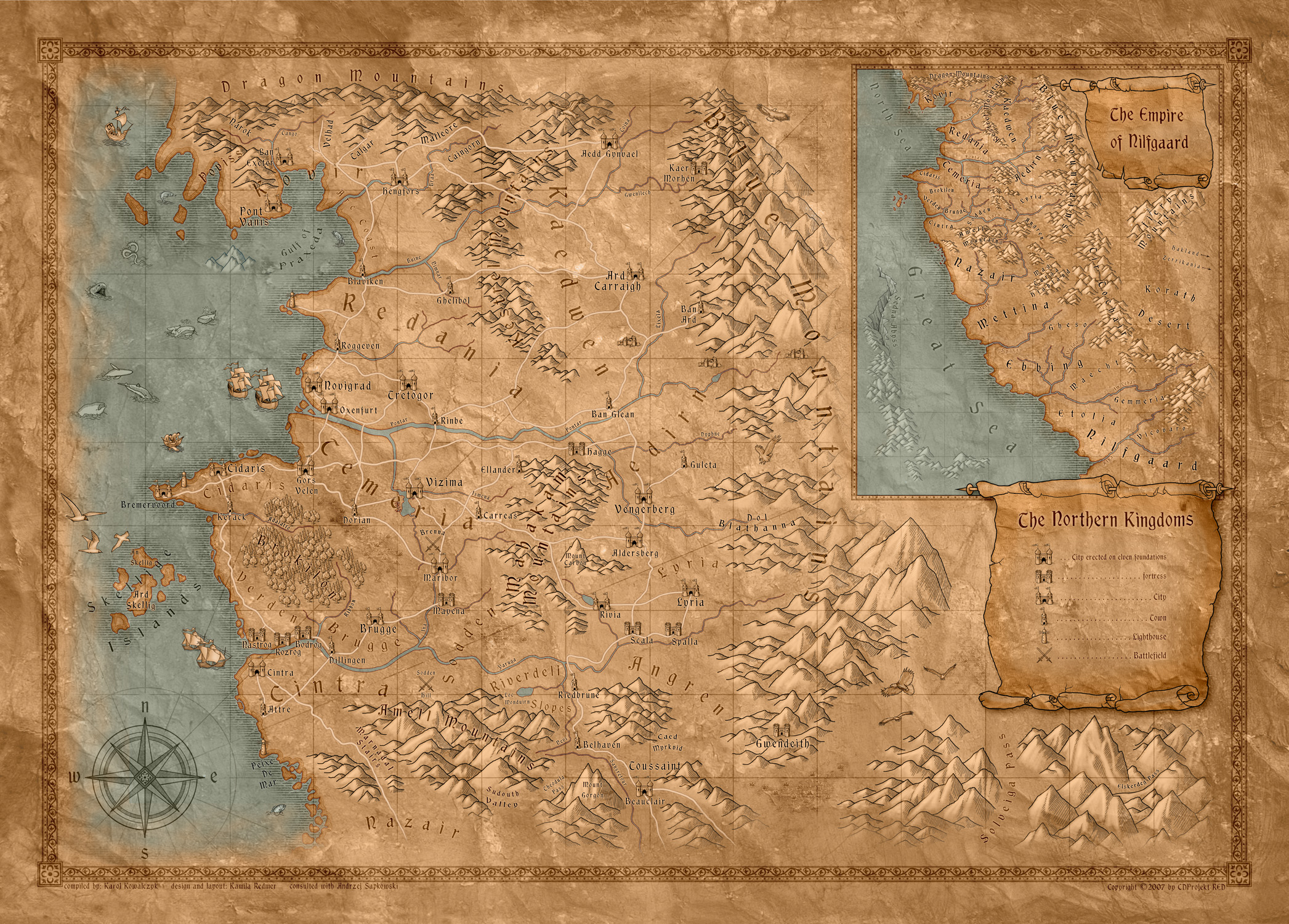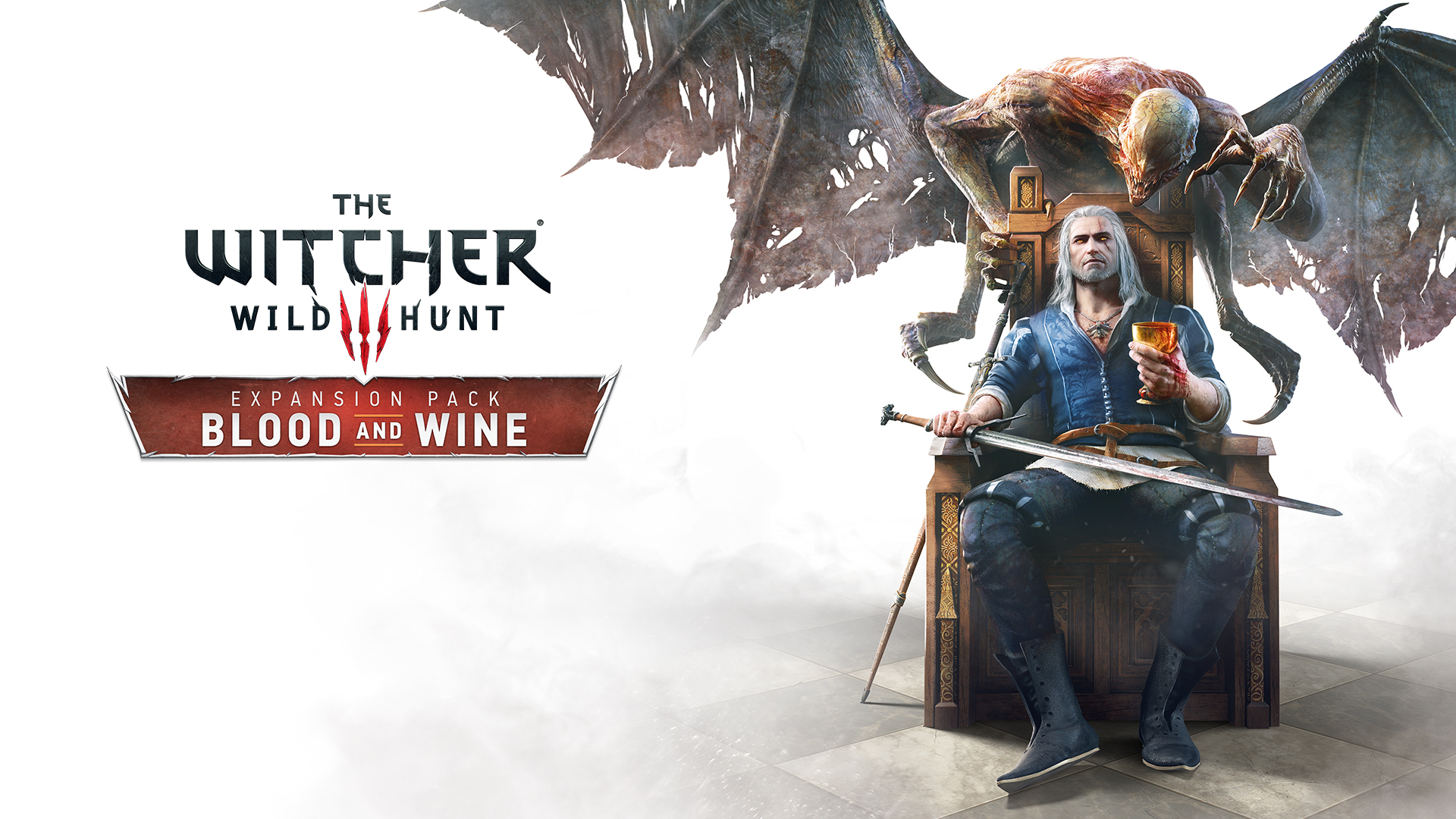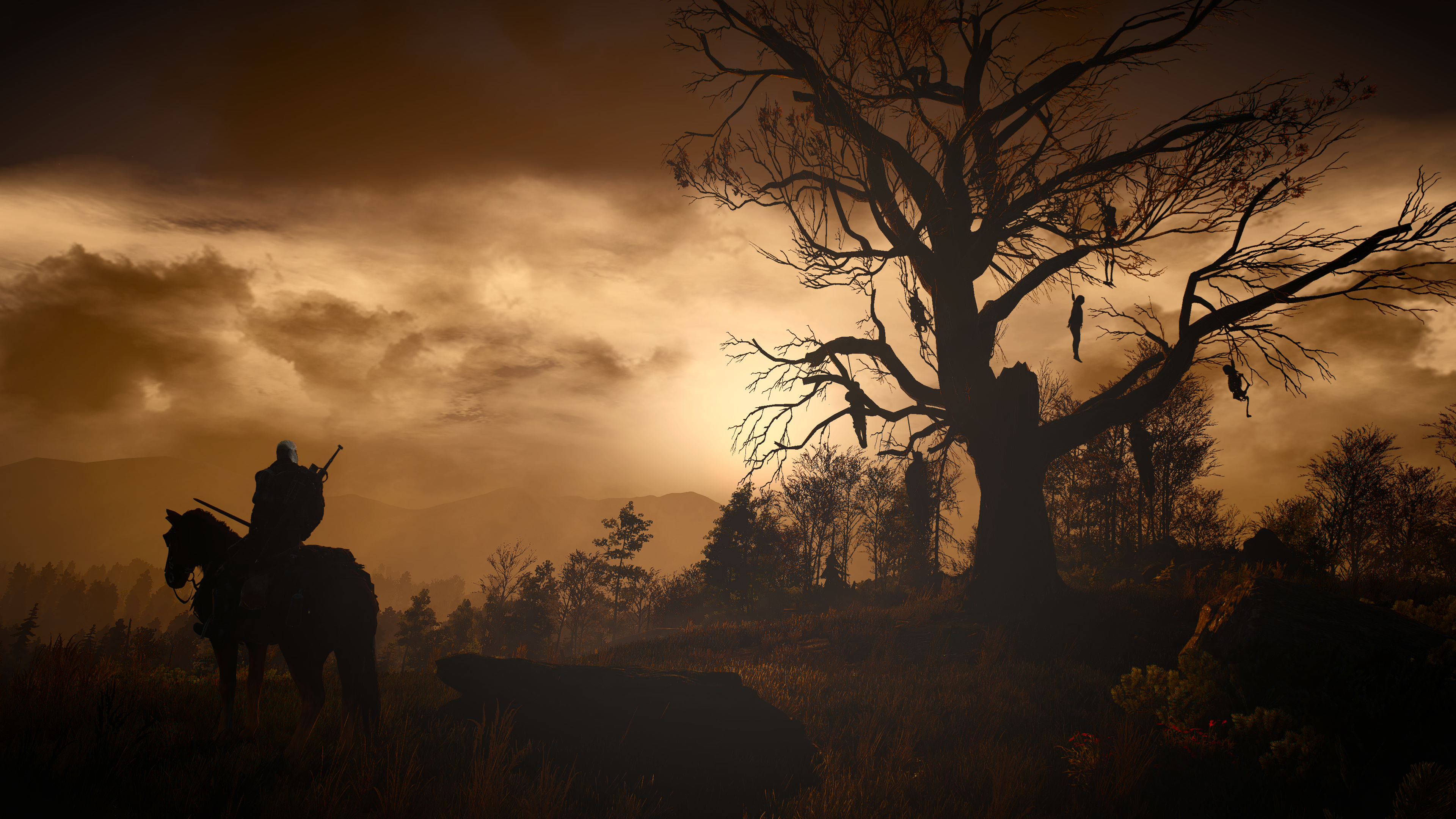Sometimes I wish I could wipe my memory of an event, not because I want to forget about it, but because I want to experience it again completely fresh. This weekend, not for the first time, I wish I could start afresh with The Witcher.
Tag: Witcher
The Witcher 2: Assassin of Kings
The first Witcher game I played was the third Witcher game, the game that really cemented the franchise as one of the great story telling roleplaying games ever made. I had heard my friend Van Der Litreb talk about it before, but somehow it never landed until I made the plunge and started playing the third game. When I had done two play-throughs of the third game and both its extensive DLC’s, I decided to take a look at the second game.
I had already watched quite a bit of gameplay on YouTube in recent years due to my deepening obsession with the Witcher backstory, so I roughly knew what the game was going to be about, which beats it would hit, and which major decisions were there to be made. I also knew that the game was considered flawed in terms of mechanics and handling when compared to the third game, but an absolute masterpiece when compared to the first game. I’ve played some dodgy games in my time simply because I liked the premise so it didn’t stand in my way. Off I went.
I really, really liked it. I didn’t love it like I love the third game, but it held my interest and got me into the storyline. The game deals much more with the politics of the northern realms than the third game did, and it got me a shitload of insight into the backstory, despite having read the books and seen the footage.
I think the developers didn’t really make the most out of the possibility of giving the player the agency to determine the outcome of the story, though. In the end, the only real decisions you get to make is whether or not a handful of characters live or die. Which I already knew of course because those are the questions you get in the early hours of the third game to set up some of the storylines there. Did Aryan live? Did you fight Letho or let him go? Did Síle de Tansarville make it through the troubling portal incident?
All in all I am very glad I played the game, and there is definitely something about the atmosphere and art direction of the game that really appealed to me. I think that’s also partly the reason why so many people who really love the books say that the second game is closer to the books than the third game is.
Midinvaerne
After Midinváerne, or Midwinter, the day of the winter solstice, the days grow longer. According to the elves, Midinváerne marks the beginning of a new cycle: the sun gradually gains power and all things beneath it are born once again. Winter Shrines erected on this day celebrate the revival of life and light, but also honor the winter, as death and resurrection are two sides of the same coin.
Magic connected to death and cold are particularly strong near the Winter Shrines, and witches can use them to prolong frost and destroy crop. Even witchers bow before the shrines to honor winter and increase the intensity of their Signs.
The Witcher III: The Wild Hunt
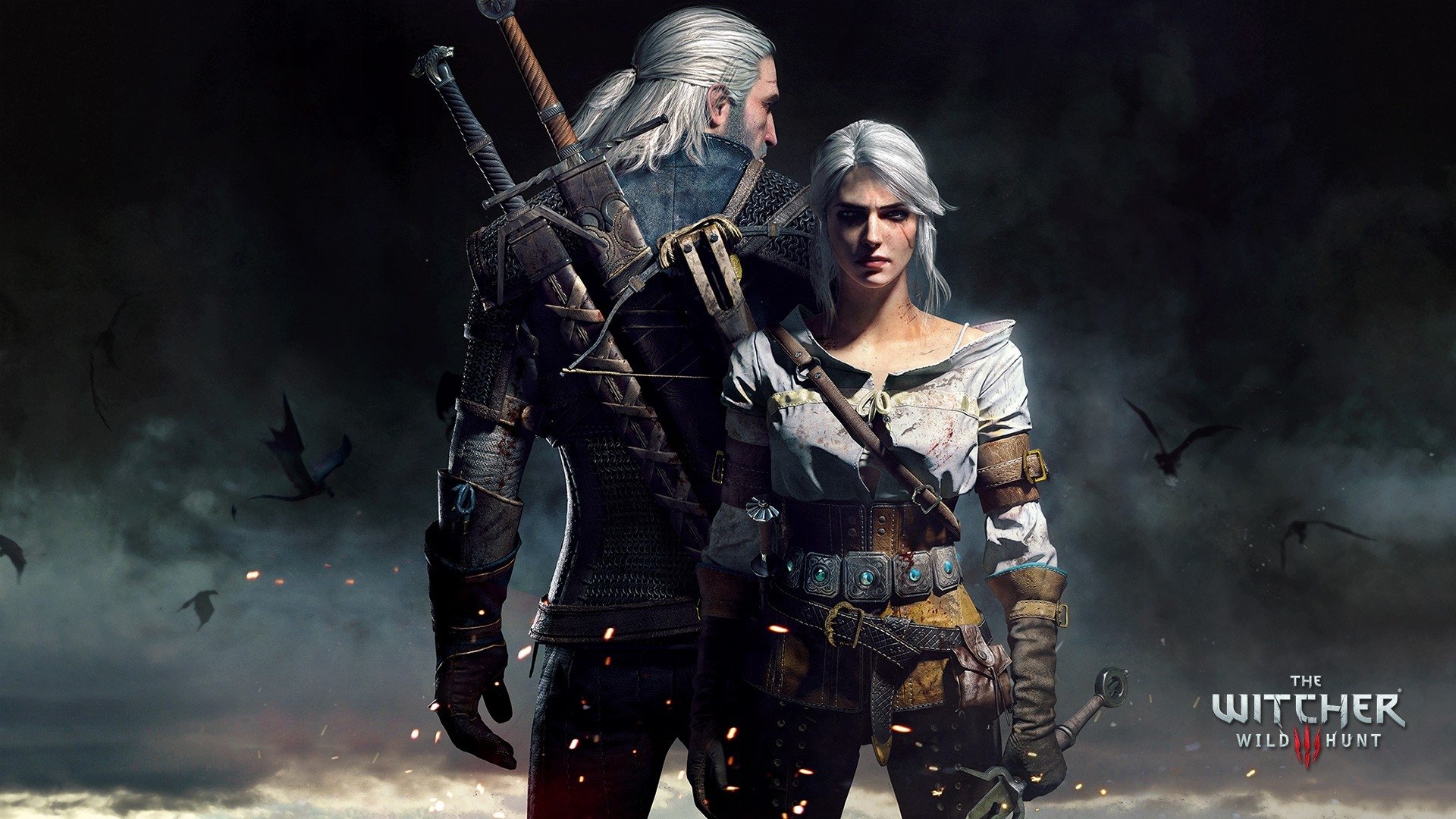 I never played the first two Witcher games, but I had been made aware of them through a buddy, who was talking about them in the mid-naughties. Somehow it never caught on with me until the promotional campaign for The Witcher III: The Wild Hunt hit the Internet. The campaign was such a juggernaut that it was nearly impossible for it not to peek your attention. At the time I had been playing Borderlands pretty intensively and it had been a while since I had gone for a large fantasy title so I was attracted to it. The last fantasy title I had played was Skyrim, which I loved, and The Witcher seemed to outdo Skyrim in every aspect. I took it up eagerly and boy did it not disappoint.
I never played the first two Witcher games, but I had been made aware of them through a buddy, who was talking about them in the mid-naughties. Somehow it never caught on with me until the promotional campaign for The Witcher III: The Wild Hunt hit the Internet. The campaign was such a juggernaut that it was nearly impossible for it not to peek your attention. At the time I had been playing Borderlands pretty intensively and it had been a while since I had gone for a large fantasy title so I was attracted to it. The last fantasy title I had played was Skyrim, which I loved, and The Witcher seemed to outdo Skyrim in every aspect. I took it up eagerly and boy did it not disappoint.
It’s two years since I first installed The Witcher, and I deinstalled it for a spell right after I finished the main game, only to come back to it later to play the two large DLC’s — Hearts of Stone and Blood and Wine — that were published, and I reckon I’ve got about 400 hours of time sunk into the game. That’s a lot, even for me. But the game is enormous, both in story as well as in scope of the sandbox world it provides.
The main story is about Geralt (the main protagnist), a witcher (more on that later), who is searching for his adopted daughter Ciri, a free spirited, adventuring woman with very special powers which makes her the target for The Wild Hunt, an evil group from another dimension who want to use her powers to invade and subjugate the world the story is set in.
The Setting
The main backdrop are the northern kingdoms, which are currently being contested over by two kingdoms, that of Nilfgaard and Redania. While the war between the two kingdoms is raging, Geralt is searching for Ciri in a war torn land. Along the way he meets people that he can choose to help, sometimes because it helps him in his search and sometimes because of his trade as a witcher.
A witcher is an agent belonging to one of several orders of monster hunters who have undergone dangerous mutations in order to improve their senses, reflexes, combat abilities and offer them some magical abilities. They are looked upon by the common folk with fear and suspicion, but when it comes to fighting monsters, wyverns ghosts or vampires none are as well-equipped to deal with those threats as a witcher.
At this point, I must make mention, at the risk of telling you something you already knew, that the entire game is based on a series of books and stories written by Polish author Andrzej Sapkowski. There was a lot of lore and material to work with and when I started the game it was a little daunting because there is so much to study, but once I took the plunge the game made it really easy to get completely immersed.
The main storyline is wonderfully written, and there are plenty of deeply compelling side stories of all sizes that you can choose to follow. Some of these stories are there to support the main story, some of them are there to flesh out the world, or to expand upon the setting, and some of them are there just to dive deeper into the history and personality of Geralt or his friends and acquaintances. All in all, it makes for a very compelling and immersive story.
So the world is large, there is a lot of lore, and the game is a technological marvel, which are all the ingredients you need to make a game that will rob you of your time. The last thing you need is good game mechanics, and this is where Skyrim fell very short. Fortunately, this game brought the lumber.
The game is part role-playing game, part exploration game, part detective game, and part action game.
The Role-Playing Game
There are several aspects to the way role-playing has been implemented into this game. The first and most obvious, which is par for the course for any self-respecting role-playing video game, is character building. It took me a little while to get comfortable with the way in which the game allows you to tweak your character in terms of stats and abilities, and initially I didn’t feel like any of my choices had much effect. The learning curve was relatively steep, but once I got the hang of the mechanics it was interesting what type of builds were possible. Especially after playing Blood & Wine, the phenomenal last DLC, in which you are allowed even further customisation of your character, I could really feel how my choices were affecting my style of gameplay.
The second aspect are the choices you make in-character, and they were beautifully implemented. There are several non-mandatory missions, quests and storylines that you can follow that affect a great many things in the game. The main storyline also has several different endings, not all of them particularly pleasant. So you really feel like your choices matter. I decided on another NG+ play-through when run through the Blood & Wine DLC had a particularly dissatisfying ending due to some of the choices I had made.
The same goes for the different romance options in the game. While I’m usually not a big fan of romance storylines in games, apart from diving deeper into the background of a particular NPC, I enjoy it more when it’s done in the way the loyalty missions in Mass Effect were done. It’s not much different in this game. The romance stories are novelties, and while fun, I don’t think they’re very satisfying. What is satisfying, however, are the consequences of choosing one lover over another. Or choosing no lover at all. In terms of inclusiveness, this game is pretty hetero-normative as compared to Mass Effect, but that might be in part due to the fact that Geralt came into this series of games with a rich and detailed back-story.
And then there is the last matter of choices. While the story choices you make have consequences, and the choices you make in character design have consequences on your play style, there aren’t that many options for different types of games you can play. Sometimes you can choose diplomacy over combat, which is nice, but you can’t really turn this game into a stealth game, for instance. Games like Deus Ex have completely been geared towards finding different ways to solve the puzzle, but The Witcher still feels like an old style D&D game, where your options are limited and usually result in combat.
The Exploration Game
As mentioned previously, this game is huge, and as a result there is a lot to see and do. There are a lot of hidden gems; enough to explore for exploration’s sake. The map isn’t endless, and eventually you’ll hit a point where Geralt politely but forcefully suggests going back, but it’s around those areas where you often find some quirky scenes that you’d be unlikely to stumble upon if you didn’t explore a little.
Several times have I stopped and just marvelled at a setting sun. Even the rather bleak environs of the war-torn Velen have something beautiful in their hideousness. When I hit Toussaint, I really felt like I just wanted to live there, with the bountiful vineyards and lush meadows I was struck by the romanticism, the longing for that other world that has driven me into the arms of table-top role-playing games since I was 10 years old.
Unfortunately, I missed a bit of mobility in Geralt. Especially jumping was hard and it lead me to feel that exploration could have been improved if his ability to climb had improved. Sometimes I stubbornly kept jumping in the hopes of being able to hit a particular ledge which was just out of reach. On rare occasion this tactic actually worked, and once I knew that I spent a bunch of time trying to get it to work in areas where unfortunately it never did (for me.) I find it incredibly satisfying to find a far off place, especially if it has some reward for the persistent player, if only if it’s a beautiful view.
The Detective Game
In a sense, The Witcher is a very noir game. The themes and structure of the story is like that of a hard-boiled detective. I’m not the only one who believes this, there are many articles out there describing the similarities between this game and some great film noir stories. One of the main mechanics utilised to create this atmosphere is Geralt’s witcher senses. Above I mentioned how mutations heightened Geralt’s senses, and as a player you get a glimpse of what it must be like to be a blood hound, as Geralt follows the scent of a monster, or follows the blood trail of a victim. His senses highlight important elements in your surroundings and his inner monologue describes how he interprets these signs. This is where Doug Cockle‘s raspy voice really shines and adds to that feeling that you’re really discovering all these things along side Geralt.
I recommend watching the Extra Credits episode on The Witcher as a detective game as it beautifully describes how this game manages to marry both the detective and the dark fantasy genre.
The Action Game
Lastly, this game is an action game and I have mixed feelings about this aspect. On the one hand, given the right difficulty level this game can be a tremendous challenge, and the range of combat options allow you a lot of freedom in combat. Different sword strikes, a set of different magical abilities, a crossbow, different bombs that can be thrown like grenades, and a very wide selection of potions and oils that can be used to give you powerful benefits. All in all the options are legion.
Unfortunately, the first thing that irked me was the way that Geralt walked. In particular, the way he turned around. He had a ridiculously wide turning circle that rivalled a small car. I say rivalled because after a lot of negative feedback from players, they changed the options to include something a little more akin to normalcy. It turned out that most of the complaints came from PC gamers, as console gamers were used to those type of controls due to the use of analogue sticks for movement. Another minor thing that could have been done better was the matter of directional control you had over dodging and rolling.
Finally, the learning curve of the mechanics of stamina and adrenaline was quite steep, especially the latter. For the better part of the game I ignored adrenaline in its entirety as I didn’t quite understand what it did or how to activate it.
The Music
One of the things that stood out to me was the wonderful music the game offered. I started to notice it early on in the game. It differs somewhat from the standard fantasy game fare by starring some unusual, old fashioned instruments rather than a full orchestra, which was nice. The Slavic influence in the music is very clear and that worked really well with the atmosphere of the game.
The pacing of the music was also something that I only started to notice later on. It’s energetic when needed, during fights or racing sequences, but slow, solemn and somber at other times when coming upon a midnight graveyard or foggy swamp. One piece that quickly stood at to me but I couldn’t find on any of the soundtracks that are available on Spotify, was the following:
The Sandbox
One last thing I wanted to touch upon was the way the game implemented the sandbox. Nowadays sandboxes are all the rage, and I understand why. But when you’re trying to create a story driven role-playing game, often putting it in a sandbox just means you’re adding points of interest that don’t tie into the story all too well, or the points of interest add story to an otherwise shallow game. I enjoyed Watch_Dogs, but that was probably the guiltiest of all sandbox games in doing this.
The Witcher managed to make every point of interest have some value and convey the sense of age to the world I was discovering, and made it feel like I was exploring a populated world with history and activity. I also didn’t ever get the feeling like I just wanted to get all the points of interest over with. I genuinely looked forward to seeing the next one, even if it was just a random den of Neckers or a camp of bandits.
The Final Verdict
I fucking love this game. I approached the end with the same forlorn sense of longing that I feel when I finish a compelling book. Even though there have been two great expansion DLC’s and a handful of free, smaller content DLC’s, I wish I could convince someone to take more of my money to make more of this game. It’s excellent and I will miss it.
